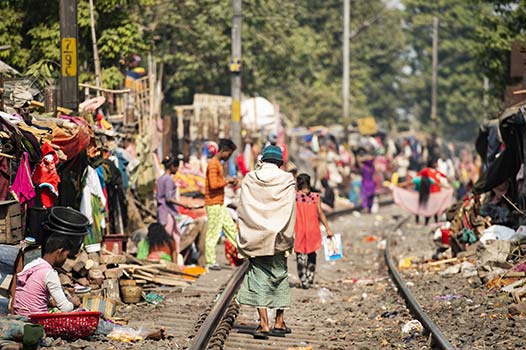
French economist Esther Duflo, Indian Abhijit Banerjee and American Michael Kremer won the Nobel Economics Prize on Monday 14th for their experimental approach to alleviating global poverty.
Their new « experiment-based » approach to tackling poverty revolutionized the development economics. They used randomised control trials to improve the ability to fight poverty in practice. For instance, Michael Kremer studied the impact of free medication on their use. The World Health Organization recommended the free distribution of deworming for more than 800 000 children living in areas with more than 20% affected population. Other studies were used to discover which health incentive or educational outcome effectively works.
On this topic, Esther Duflo and Abhijit Banerjee study the causes of poverty traps in « Poor Economics: A Radical Rethinking of the Way to Fight Global Poverty. » They call for rethinking the economics of poverty and the policy for alleviating it, through an experimental approach over dozens of countries spanning five continents.
Next Monday, October 21st at AMSE, Pascaline, a professor at the Standford University, will give an AMSE lecture on a paper titled “The Private and Social Returns to Free Secondary Education”, co-authored with Esther Duflo and Michael Kremer.
Abhijit Banerjeen was Keynote Speaker at the 2013 LAGV lectures organized by AMSE. Esther Duflo presented in April 2018 at AMSE her article, « Using gossips to spread information: Theory and evidence from two randomized controlled trials », co-written with Abhijit Banerjee and Arun G. Chandrasekhar and Matthew O. Jackson.
Esther Duflo is professor at the Massachusetts Institute of Technology (MIT). She is the second-ever female winner after the American Elinor Ostrom in 2009 for its analysis of economic governance on the commons. Esther Duflo was the adviser to president Barack Obama over development concerns.
The winners will receive in December the Economics Sciences award, funded by the Sveriges Riksbank. It comes with a gold award, a diploma and 9 million Swedish krona (830 000 euros) to share.
Find out more about The Prize in Economic Sciences 2019 on the The Nobel Prize website
© Photo by Travel Wild on Adobe Stock